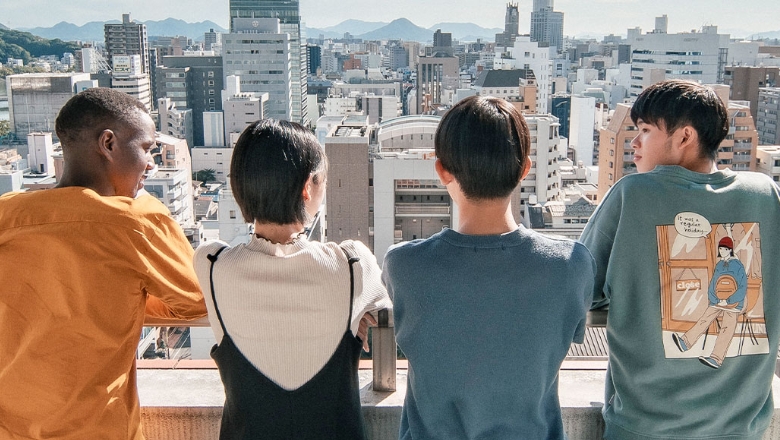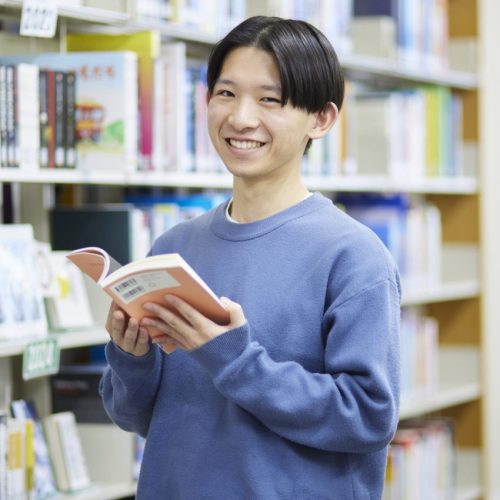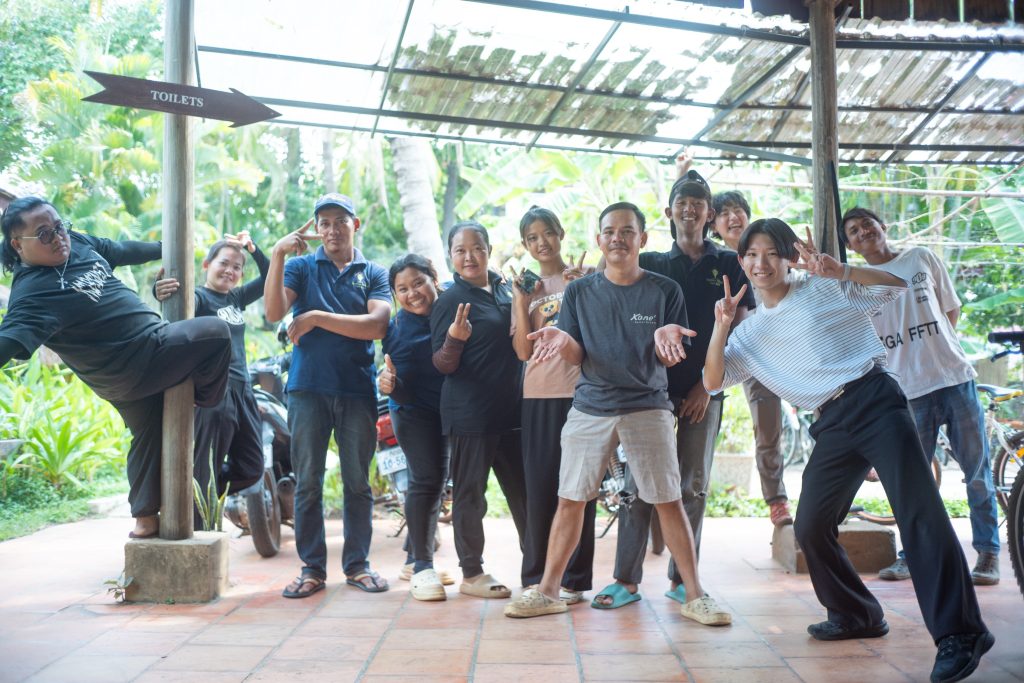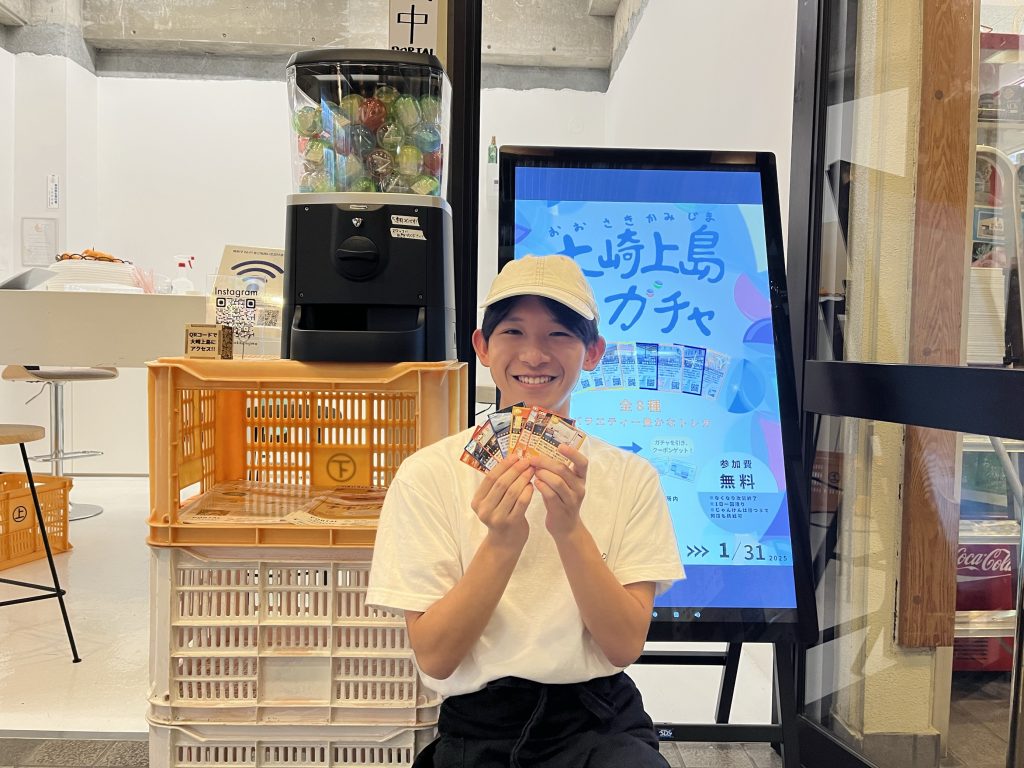About
Alumni


FUJIMOTO Kohei
Hiroshima Electric Railway Co., Ltd. March 2025 Graduation
Updated March 2025
Broadening My Perspective and Taking the First Step—Inspired by My Peers
As a high school student, I didn’t have a clear career goal. I simply had a vague desire to “do work that benefits society.” I was also interested in terms like regional revitalization and community development, but I didn’t know what I could actually do. I thought that studying economics might broaden my future options, so I initially aimed to enter a national university’s economics department.
Then, my homeroom teacher recommended Eikei University of Hiroshima. At first, I had no idea what kind of university it was just from the name. But after attending an online open campus, I learned about its unique features and felt like I had caught a glimpse of the path I should take. I was especially drawn to the small class sizes and discussion-based learning style. Unlike traditional lecture-based classes, I believed that interactive learning would allow me to acquire knowledge I could actually apply.
I also became interested in the field of Social System Design. While economics departments focus solely on “economics,” Eikei University of Hiroshima offers a liberal arts foundation and a perspective of “designing social systems.” I was attracted to the idea of developing the ability to anticipate social change and generate new ideas, which ultimately led me to choose this university.
After enrolling, I spent my days exploring what I could do. Through Project-Based Learning and projects focused on addressing issues in local communities and businesses, my interest in regional revitalization became more concrete.
In the spring of my second year, I participated in an internship in Matsuno Town, Ehime Prefecture. There, I helped plan and manage a “Candle Night” event that utilized local resources. Based on the concept of a hotel that coexists with the natural environment, we aimed to provide guests with experiences that allowed them to connect more deeply with the local nature and culture. Through this experience, I realized that “if we can highlight and communicate a region’s appeal, we can enhance its value.” Taking part in everything from planning to execution also helped me develop strategy and energetic drive.
In my third year, I joined an overseas internship in Cambodia. I was in charge of promoting an eco-friendly hotel and had the opportunity to reflect on the relationship between tourism and local communities. Tourists are typically the recipients of services, while local residents are the providers. I began to question this fixed dynamic. Drawing on the global collaboration I had developed in Eikei University of Hiroshima’s diverse environment, I worked with local people across cultures to explore new forms of tourism. I came to believe that “if tourism can become a mutually beneficial exchange rather than one-sided consumption, communities can achieve sustainable development.”

For my Degree Project, I focused on Osakikamijima in Hiroshima Prefecture, where I worked on creating a system to foster interaction between tourists and local residents. We installed a capsule toy (gachagacha) machine at the port that dispensed coupons usable at local shops, encouraging tourists to visit those businesses. Interestingly, the machine was used more by local residents than tourists, but this led to a valuable realization: “When local people enjoy their own town, it contributes to revitalization.” I learned that solving regional issues requires not only external support but also the active involvement and renewed appreciation of the community itself.
Through these experiences, my vague desire to “do something helpful for society” evolved into a concrete vision: “to create systems that highlight regional value and foster human connection.”

After graduation, I will join Hiroshima Electric Railway Co., Ltd. I plan to work on urban development and address issues such as youth outmigration by breaking down regional challenges and exploring solutions one by one. I hope to contribute to revitalizing Hiroshima by applying the competencies I developed as a student—identifying problems and implementing solutions.
To future students and juniors, I want to say: “The most important thing is to take that first step.” When I entered university, I didn’t know what I wanted to do. But by taking on various projects and internships, I gradually discovered my interests. You don’t need to have a perfect vision from the start. Just take a small step forward, and through that, you’ll begin to uncover your potential and shape your future.
